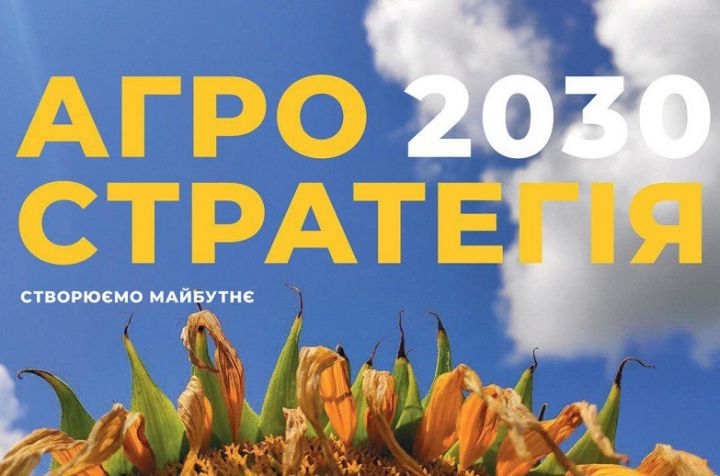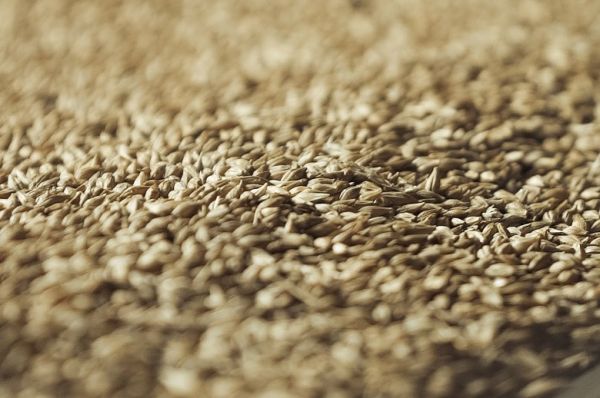A development strategy of the agricultural sector by 2030 presented in Ukraine

The Ukrainian Institute for the Future (UIF) and Latifundist Media presented the strategy for the development of Ukraine's agricultural sector by 2030, "Ukraine — the World's Supermarket of Eco-Friendly Products", AgroPolit.com reports.
The Strategy is available on the UIF website.
Anatoly Amelin, Director of Economic Programs at the Ukrainian Institute for the Future, spoke about the role of the agro-industrial complex in the outlook until 2030 and the consequences for the economy and the sector itself.
"The role of the agricultural sector is crucial in AgroStrategy 2030, as over the coming 10 years we will witness events having consequences for each of us. The world's population will increase by 1 billion, which means that this billion of people will have to be fed. By our calculations, the share of agriculture in the total GDP (in 2030 it is forecasted to reach USD 100 billion) will grow from the current USD 20 billion to USD 175 billion, the production structure will be dominated by value-added products (now the situation is reversed). The total export of the industry will increase 5x up to USD 100 billion, which will significantly strengthen the currency position of the hryvnia. The country's economy will receive additional USD 46 billion from the reinforcement of the agricultural sector's positions, as well as USD 80 billion of additional GDP and USD 15 billion of taxes to the budget over 10 years. Ukraine will utilize more eco-friendly products and the total value of products will be lower than that of imported products," notes Anatoly Amelin.
Tatyana Prikhodko, CEO of Latifundist Media, outlined two main goals of the Strategy for the Ukrainian agricultural sector until 2030.
"Our calculations with UIF show that the agricultural sector will change radically in 10 years: in 2030 Ukraine is the world's food security center. Over the past 10 years, we have solved two important tasks: firstly, we preserved and developed our position as the world's leading supplier of grains and oilseeds, as well as poultry and eggs. Secondly, we have become a global supermarket for organic food, i.e. we have started working in the premium products sector. Today, Ukraine exports products worth USD 5.9 billion per year to the EU, while the total exports make up USD 19 billion, the amount of taxes paid stand at UAH 43 billion, profitability varies between 30-150%, etc. It is a good result, but not enough," she explains.
Analysts of UIF and Latifundist Media have pointed out 5 KPIs for Ukraine's agricultural sector by the end of 2030.
"Within 10 years, 40 agrarian commodity positions of Ukraine will be included in the TOP-10 of the world in terms of production and export. We have the potential to be №1 in production and export of sunflower oil, corn, organic malting barley, sweet potatoes and technical hemp; in TOP-3 with wheat, barley, flour and poultry meat, and in TOP-5 with cheese production capacity. Besides, Ukraine will be among the three producers and suppliers of organic products in Europe and among the five most visited countries in the world in the category of agrotourism," summs up Tatyana Prikhodko.
Natalia Bilousova, Chief Editor of AgroPolit.com, spoke on Ukraine's agro-industrial complex development by 2030, and on expert calculations with UIF.
"Firstly, the production structure is dominated by value-added products (70%) rather than raw materials (30%). Secondly, Ukraine will consolidate and improve the existing model of the domestic agricultural market: 20% — large agribusiness, 40% — medium, 40% — small. Today many discussions are held on whether the country needs agricultural holdings or not. We believe that we definitely need those, as it is such large companies as MHP, Kernel, Ukrlandfarming and others that are the drivers of innovative changes and set the tone for progressive changes in the market. Thirdly, a liberalized land market will open up a window of investment opportunities for the industry. As a result, the total amount of investments in the agricultural sector will be about USD 46-50 billion, of which USD 15 billion are external and USD 31 billion — domestic. Fourthly, new business models and new forms of cooperation will emerge. New technologies and AgTech will lead to the introduction of artificial intelligence in the agricultural sector over the next 10 years. And lastly, it is the creation of a specialized R&D centers system, which should result in the creation of an "agricultural valley" in Ukraine, where new startups and innovations will be developed. As a result, the productivity in the agricultural sector will increase from USD 4 thousand to USD 27 thousand, in processing — from USD 25 thousand to USD 150 thousand. The number of employees involved in the agro-industrial complex is expected to decrease, yet their qualifications and wages will improve," explains Natalia Bilousova.
According to her, the synergy of agribusiness and IT-development supported Ukraine's entry into the TOP 5 countries in terms of using precision farming systems.
"In 10 years we hope to see Ukraine as a world food security center and an international organic hub," says Natalia Bilousova.
Comments and proposals to the Strategy are welcomed in the comments to this news or sent to press@latifundistmedia.com with the topic "AgroStrategy 2030".

